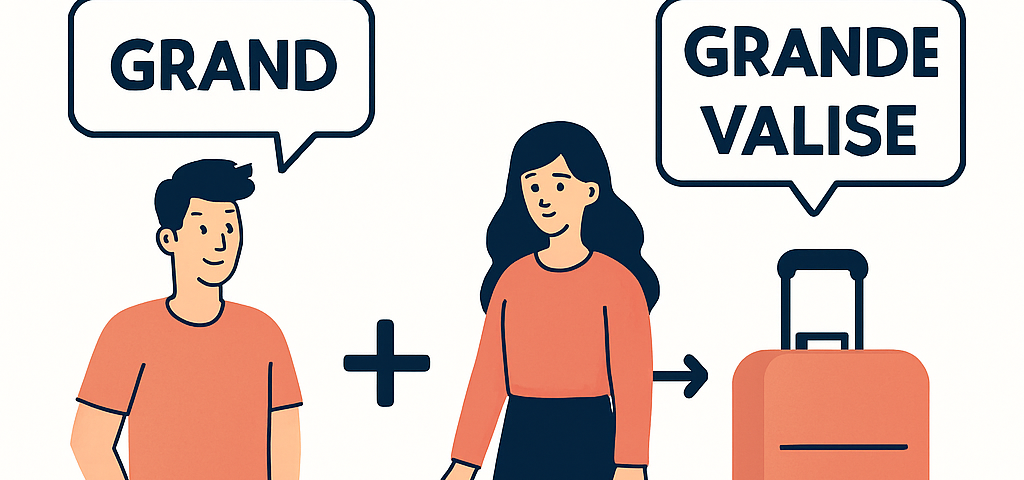
Definite and indefinite articles French
June 12, 2025
Mastering Advanced Adverb Placement in French: A Guide for Serious Learners
June 12, 2025One nuanced aspect of the French language that is often overlooked is the concept of adjective agreement, particularly as it pertains to gender and number in complex sentences. Mastery of these rules is crucial for both effective communication and refined writing, ensuring that adjectives accurately reflect the noun they modify. This deep dive is essential for parents, teachers, and students engaged in mastering French, aligning perfectly with LearnFrenchTutor’s mission: Quick French Tutor for French Students.
Understanding Gender Agreement
French adjectives must agree in gender with the nouns they describe. This involves adjusting the adjective’s ending based on whether the noun is masculine or feminine. Understanding and applying this rule is foundational for anyone serious about mastering the language.
- Masculine adjectives typically end in a consonant (e.g., “grand”), while feminine counterparts often end in -e (e.g., “grande”).
- Exceptions exist; for example, adjectives like “beau” (handsome) become “belle” (beautiful) in the feminine form.
- Some adjectives are invariable, not changing with gender (e.g., “cool”).
Number Agreement Complexity
While gender agreement is standard, number agreement introduces additional layers of complexity. Adjectives must also reflect whether the nouns are singular or plural. This typically involves modifying the adjective’s ending accordingly.
- Singular masculine adjectives take the original form; plural forms often add -s (e.g., “grand” vs. “grands”).
- Feminine adjectives take -es for plural forms (e.g., “grande” becomes “grandes”).
- Collective nouns may require unique interpretations regarding pluralization (e.g., “des femmes âgées” vs. “un homme âgé”).
Adjective Position and Agreement
In French, the position of adjectives can alter their agreement and meaning. Certain adjectives appear before the noun, while others come after, which can affect their inflection as well.
- Common adjectives such as “beau” or “jeune” typically precede the noun (e.g., “le beau jardin”).
- Adjectives like “intéressant” and “petit” come after the noun (e.g., “un jardin intéressant”).
- Position impacts emphasis and interpretation—placement before can signal emotion or subjectivity.
Advanced Usage: Inconsistencies and Exceptions
In advanced French, there are distinct exceptions and inconsistencies in adjective usage and agreement that learners must navigate. From historical influences to regional dialects, understanding these can enhance one’s linguistic fluency.
- Some adjectives have different meanings based on their position (e.g., “un homme pauvre” vs. “un pauvre homme”).
- Cultural nuances often influence adjective choice, particularly in literary or artistic contexts.
- Teachers emphasize real-world applications of exceptions to help students contextualize their studies.
Strategies for Mastery
To navigate the intricate labyrinth of French adjective agreement, students can utilize various strategies, ensuring both comprehension and application are prioritized.
- Practice through written exercises focusing on gender and number variations.
- Engage in conversation groups to reinforce verbal agreement dynamically.
- Utilize multilingual resources and tools for targeted grammar exercises.
Mastering the subtleties of adjective agreement not only enhances linguistic proficiency but also enriches cultural understanding in French. By grasping these advanced insights, students can elevate their French studies effectively. We invite you to explore more at LearnFrenchTutor (LFT)—Quick French Tutor for French Students—to deepen your understanding of adjective agreement and elevate your language skills to new heights.

